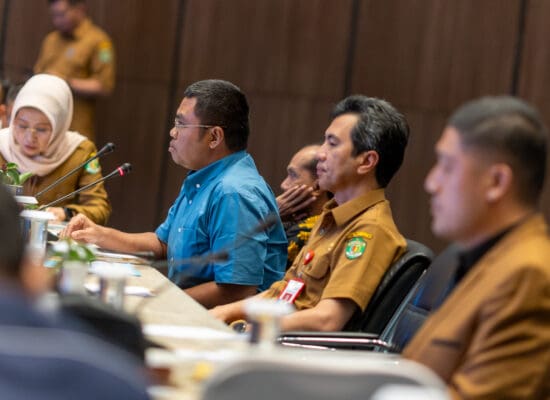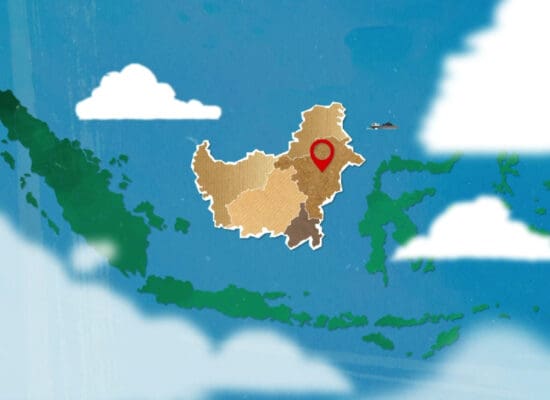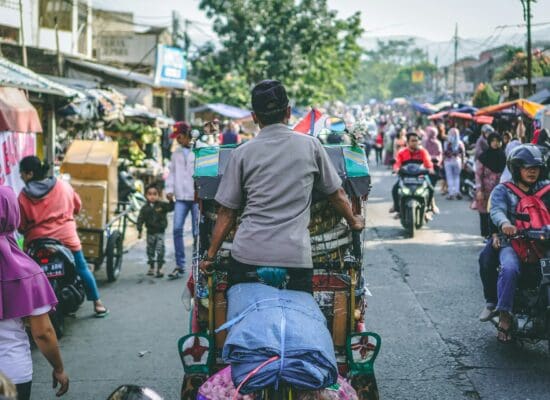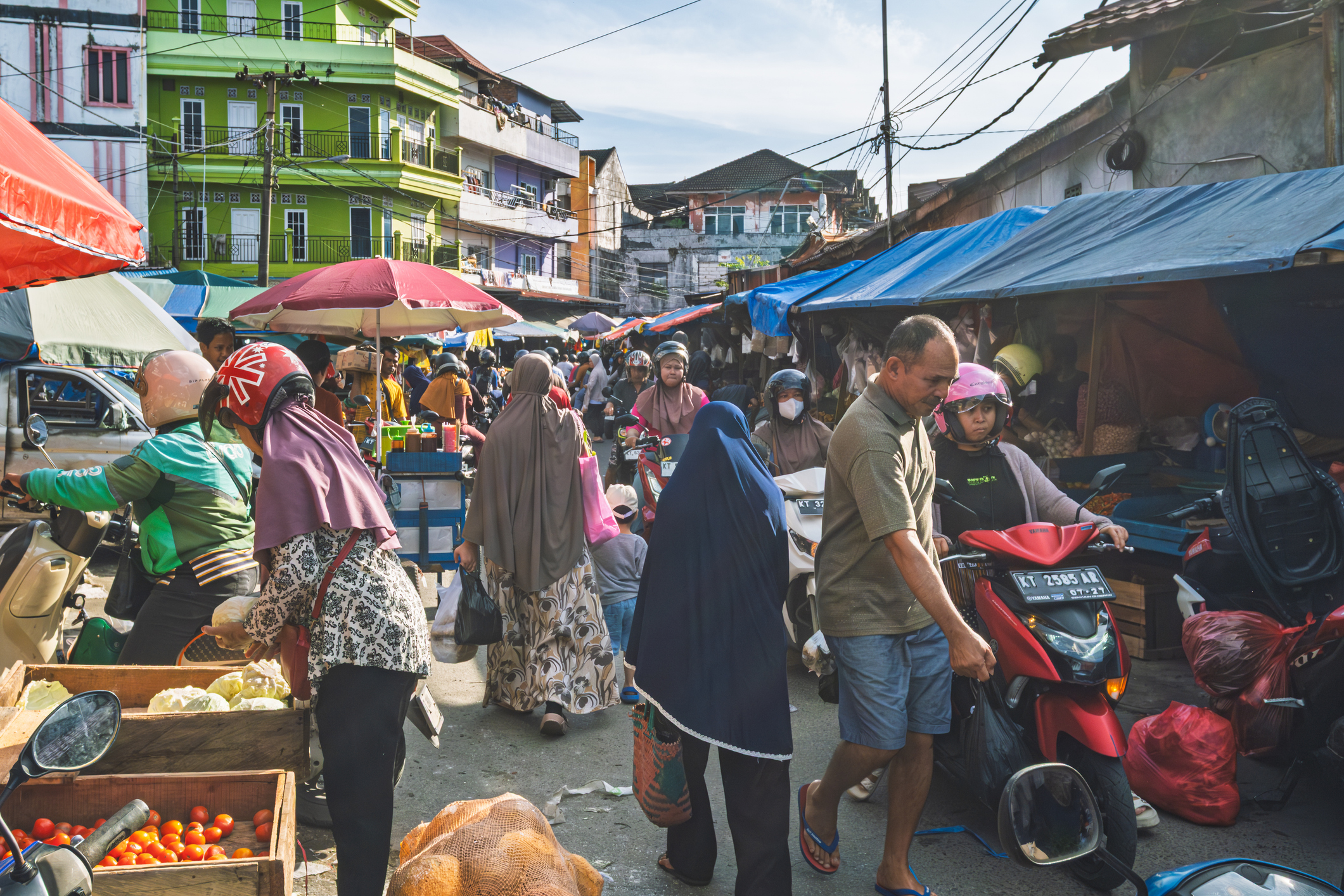
Despite being directly impacted by the fossil fuel sector and therefore vulnerable during the energy transition, local communities are often excluded from decision-making processes. Yayasan Mitra Hijau (YMH), an environmental organisation that is part of the Climate Action Network, aims to support the inclusive participation of these communities in coal-dependent provinces in Indonesia like South Sumatra and East Kalimantan. As a consortium member of the Innovation Regions for a Just Energy Transition (IKI JET) project, YMH is providing this support through grassroots engagement and capacity building.
Among its activities, the organisation provides training for stakeholders, such as women and young people, at the community level. This acknowledges their significant role in shaping regional plans and policies on just energy transition, such as through the newly established Regional Consultation Forum. As such, this initiative complements the efforts of other IKI JET consortium members who target the tripartite groups (governments, employers, and workers) traditionally included in just energy transition discussions.
But what does this outreach look like in practice? Here, we outline three examples of YMH’s work in awareness raising, policy advocacy, and journalistic training, and explore the impact that these initiatives have on participants.
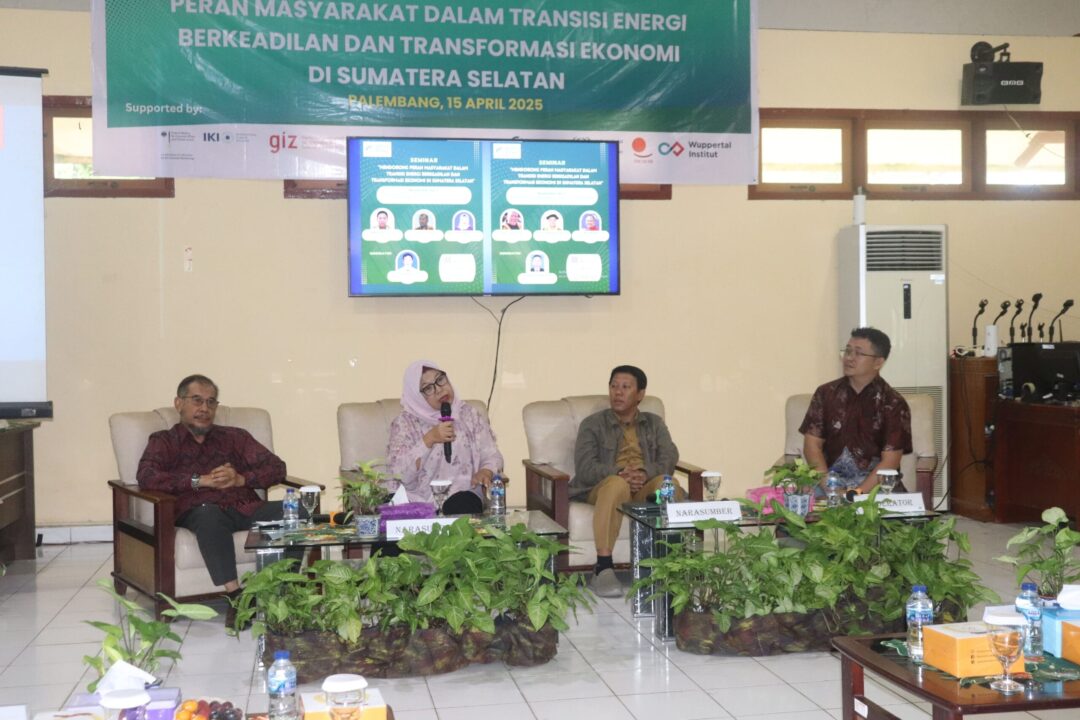
Building the movement from the ground up
Local communities are central to scaling clean energy and ensuring a just transition. They possess deep knowledge of their environment, are directly affected by the impacts of coal, and play a vital role in shaping lasting change. Yet, they are often sidelined—lacking access to critical information, decision-making spaces, and the means to express their views.
To narrow these gaps, YMH has launched outreach campaigns in South Sumatra and East Kalimantan. By working closely with civil society groups and village-level organisations, the initiative fosters public dialogue, raises awareness, and facilitates community-led sustainable development. The initiatives take the form of public seminars, typically featuring a panel of experts, and begin with a presentation on the broader context of climate change and just energy transition led by YMH. Following this introduction, the panellists provide a deeper dive into specific topics according to their expertise, and the participants can ask questions or share their thoughts.
Ebin Stefenko, a participant from the environmental group Spora Institute, found the training particularly eye-opening: “Now I see how my job is related to decarbonisation and climate efforts,” he said. Stefenko’s work focuses on educating villagers and farmers about waste management and clean energy—activities that have taken on new relevance in the context of the energy transition. Armed with deeper knowledge, Stefenko feels more confident about encouraging behaviour change in the communities he supports. Inspired by the training, he is eager to learn more about green jobs and how coal-dependent communities can navigate the systematic change.
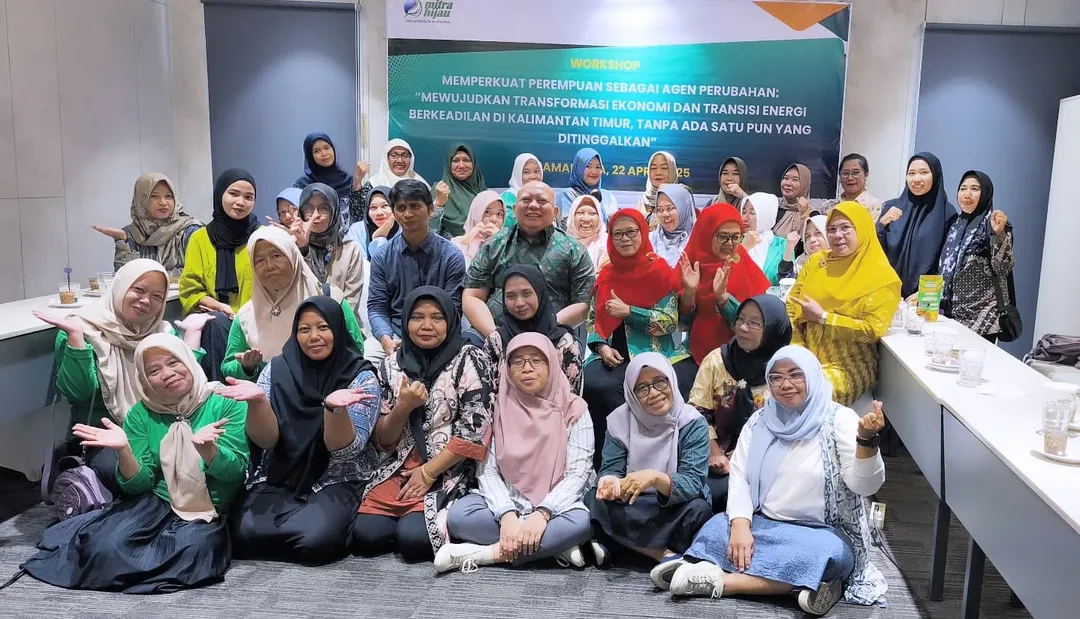
Listening to women’s voices
A just transition goes beyond decarbonisation—it must also tackle inequalities, including gender disparities. Recognising this, YMH organised a series of workshops for women’s groups, preparing them for meaningful participation in the Regional Consultation Forum established to support the provincial government as it develops just energy transition plans.
“These issues are often seen as masculine,” noted Sari Mulyani of the Nahdlatul Ulama Women’s Association of East Kalimantan. To bridge this perceived gap, the workshops offer accessible entry points—like waste-sorting and energy-saving tips—that help women connect daily practices to broader climate goals. The women also receive training in public speaking to ensure their voices are heard in the Regional Consultation Forum.
In fact, their perspectives as women living in coal regions are indispensable; they have witnessed first-hand the negative impacts of the coal sector, from air pollution to unstable housing, and they know only too well the dangers posed by unrehabilitated pits and sinkholes in roads and residential areas, which have led to the deaths of children.
Tri Muryati from the Kutai Kartanegara Chapter of Aisyiyah, Muhammadiyah’s women’s wing, recalled buying a house on land previously used for mining, only to find that the road sank. Sri Wahyuni from the SMEs Group at Sepakat village lives just a few hundred metres from an open pit. “I can’t sleep during heavy rains,” she said, “because I fear there will be landslides or floods.”
These stories illustrate why environmental rehabilitation is an essential part of any just transition strategy that supports the shift away from coal.
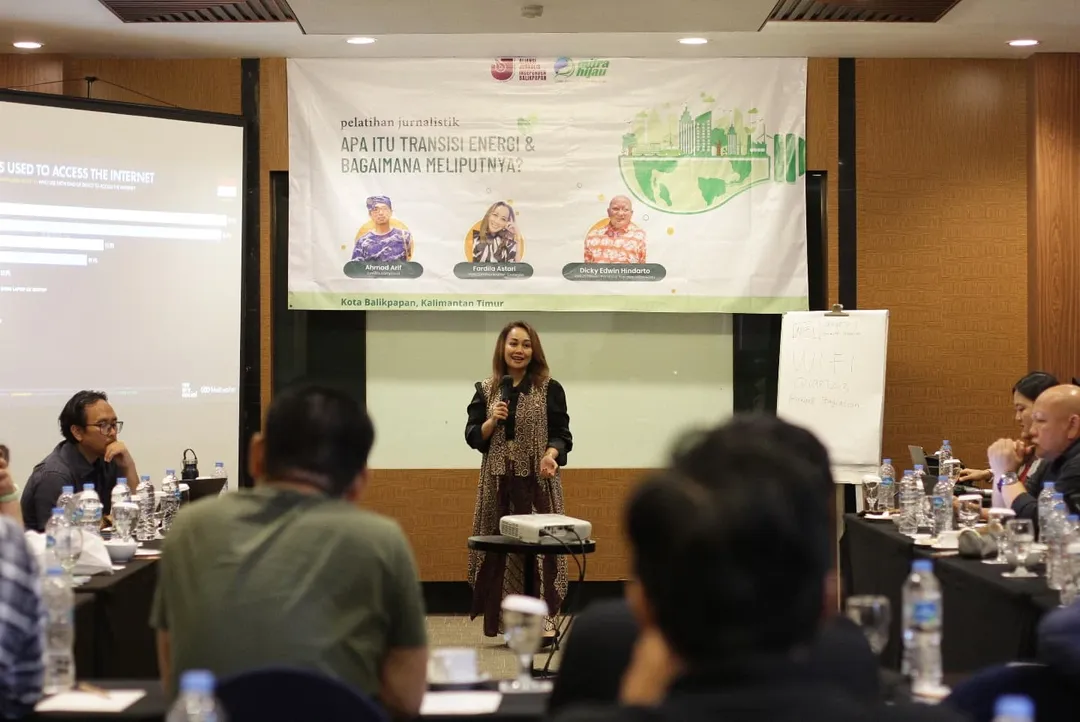
Strengthening journalism in the civic space
Another crucial pillar of inclusive participation is independent, well-informed media. To strengthen local journalism on energy and climate topics, YMH has partnered with the Alliance of Independent Journalists (AJI) to organise training in East Kalimantan.Local news outlets are vital for informing the public and holding the powerful to account in areas that are not reached by national newspapers. “We often cover news from the coal mining sector, including illegal operations,” said Muhammad Rizki, the managing editor of Kaltim Post, part of the Jawa Post network. But he also acknowledges that they struggle to translate national energy transition narratives into localised reporting, given the unique challenges in a province whose development has long relied on the coal economy. Training sessions like those offered by AJI are seen as critical for improving the quality of reporting and helping the media play a constructive role in the transition.
“Our coverage is only on the surface,” Rizki admitted. With limited journalistic resources and pressure to produce more content, in-depth analysis is often sidelined. Rizki emphasised the need to highlight not only the decline of coal but also the pathways towards a post-coal future, including the economic diversification strategies that East Kalimantan must now develop.
“The coal transition will happen eventually, either due to depleting reserves or by being incentivised through national policy,” he concluded.
A work in progress
To carry out these initiatives, YMH has mapped relevant stakeholders and assessed what they need to participate in a just transition, including access to information. The examples presented here provide an initial snapshot of YMH’s work—its capacity-building programmes will continue to roll out until 2026, giving the organisation opportunities to engage with many groups, including young people and local communities. Through this outreach work, YMH is actively empowering overlooked stakeholder groups to participate in decision-making processes in a meaningful way and to raise their voices, paving the way to a truly just transition.
Stay Informed and Engaged
Subscribe to the Just Energy Transition in Coal Regions Knowledge Hub Newsletter
Receive updates on just energy transition news, insights, knowledge, and events directly in your inbox.
